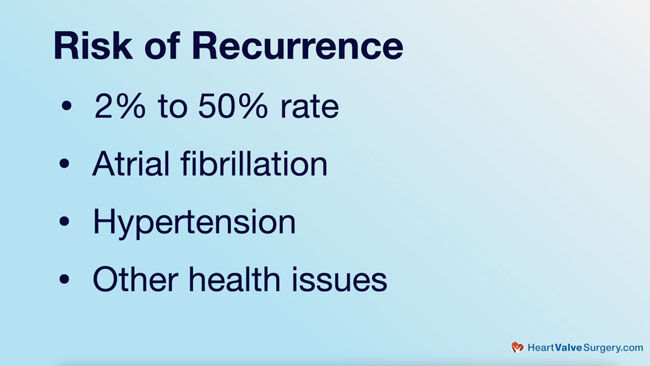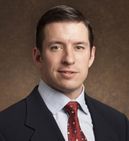Surgeon Q&A: Mitral and Tricuspid Valve Repair Survival, Durability & Outcomes
Written By: Allison DeMajistre, BSN, RN, CCRN
Medical Expert: Dr. Rob Smith, Chair of Cardiac Surgery at Baylor Scott & White–The Heart Hospital in Plano, Texas
Reviewed By: Adam Pick, Patient Advocate
Published: September 6, 2023
I just received an excellent patient question from Alexandra about the survival and durability rates for mitral and tricuspid valve repair. In her email, Alexandra asks, “Hi, Adam—All the data I’ve seen measures outcomes for mitral valve repair alone. Have you seen any data on survival and durability rates for patients undergoing mitral and tricuspid valve repair surgery?”
To answer Alexandra’s question, I was lucky to connect with Dr. Robert Smith, Chair of Cardiac Surgery at Baylor Scott & White–The Heart Hospital in Plano, Texas, at the Mitral Conclave in New York City. Dr. Smith is a minimally-invasive specialist who has performed thousands of heart valve surgeries, including combined mitral and tricuspid valve repair.
Key Learnings About Mitral & Tricuspid Valve Surgery
A great question without a simple answer:
- Dr. Smith quickly apologized because Alexandra’s question was difficult to answer. Many different factors are involved when repairing the mitral and tricuspid valves together. “The first part about this is we’ve now taken a simple isolated mitral valve surgery, which is not so simple, and now we’ve confounded it with this other piece, tricuspid valve surgery,” said Dr. Smith. The outcome and expectation, according to Dr. Smith, depend on several factors, including the amount of tricuspid valve regurgitation, how large and dilated the valve is, and the degree of tricuspid valve insufficiency. “It really depends on your particular issue. Which one of those pieces you had, how did you originally present, what was the treatment, and what was the result? That gives us a lot more to talk about on the expectation.”
The mitral valve’s role, regurgitation, and risk of recurrence
- The most important factor to consider is degenerative mitral valve disease. “It’s not the tricuspid valve,” Dr. Smith told us. “In fact, in most of those instances, we think the tricuspid valve is really a consequence of the original problem, which is the mitral valve.”
- A successful mitral valve repair is only the first piece. Next, Dr. Smith looks at the severity of regurgitation and how it plays into the risk of recurrence. “The risk of recurrence is anywhere from about 2% to 50%. Why so big? Because one, we don’t know all the factors behind why it reoccurs,” Dr. Smith told us. Atrial fibrillation is a major risk factor for recurrence, and if successfully treated, it will reduce that risk significantly. “If you have hypertension and other downstream problems, it increases the risk of recurrence over time.”

Tricuspid valve data is evolving
- Dr. Smith admits there isn’t a lot of data on tricuspid valve repair because it’s a newer surgery than the mitral valve. He told us, “We’re learning and trying to get all the information we possibly can, and I don’t have all the specific answers yet. Is there a risk of mortality with any of these things as far as if they recur? Yes, there is. Are you dramatically at an improved chance for a very long, happy, healthy lifestyle when you have surgery to address your mitral valve disease? Absolutely!”
- Dr. Smith assured Alexandra and patients everywhere that they continue to work at answering these types of questions and are setting up the stages for clinical trials in the near future.
Thanks Dr. Smith and Baylor Scott & White – The Heart Hospital Plano!
On behalf of our patient community, many thanks to Dr. Robert Smith for sharing his knowledge and insights about mitral and tricuspid valve durability. Also, we want to thank Baylor Scott & White-The Heart Hospital in Plano, Texas, for continuing to take great care of our heart valve patients!
Related Links:
- See Dr. Smith’s Profile on HeartValveSurgery.com
- Robotic Mitral Valve Replacement: What Should Patients Know?
Keep on tickin!
Adam
P.S. For the deaf and hard of hearing members of our community, I have provided a written transcript of this interview below.
Video Transcript:
Adam Pick: Hi, everybody, it’s Adam with heartvalvesurgery.com, and we are at the Mitral Conclave in New York City. I am thrilled to be joined by Dr. Rob Smith, who’s the Chair of Cardiac Surgery at Baylor Scott & White, the heart hospital in Plano, Texas. Dr. Smith, it is great to see you again.
Dr. Smith: Yeah, great to see you, Adam.
Adam Pick: Yeah, Dr. Smith, you and I have known each other for a long time. We’re at the Mitral Conclave, seeing these great presentations, and we’ve gotten some patient questions while we’re here. I was curious to know if you can answer Alexandra’s question. She asks, “All the data I’ve seen measures outcomes for mitral valve repair alone. Have you seen any data on survival and durability rates for patients who undergo both mitral and bicuspid valve repair surgery?”
Dr. Smith: So Alexandra, it’s a really good question, and I wish I had some really easy to sum up, one-line answer. Unfortunately, like so many things probably every time you go to your doctor’s office, you get this really long-winded answer, I’m going to give you a long-winded answer, so I’m sorry. The first part about this, Alexandra, is we’ve taken now simple isolated mitral valve surgery, which is not simple, as you already know, and now we’ve confounded it with this other piece, which is bicuspid valve surgery.
Tricuspid valve surgery, when it’s undertaken for patients with anything from a mild amount of regurgitation but a big dilated valve to really bad bicuspid valve insufficiency, and it really depends for your particular issue which one of those pieces you had, how did you originally present, what was the treatment, what was the result, and that gives us a lot more to talk about on what’s the expectation. First off and most importantly, when we’re talking about degenerative mitral valve disease, Adam and for the rest of the folks out there, is that’s really the key component to this. It’s not the bicuspid valve. In fact in most of those instances, we think the bicuspid valve is really a consequence of the original problem, which is the mitral valve.
Number one, if you had a great mitral valve repair, awesome, and I’m excited for you. That’s really the first piece we need to focus on. The second thing is if you had severe regurgitation. What’s your risk of recurrence? Well, the risk of recurrence is probably anywhere from about 2% to 50%. Why so big? Because one, we don’t know all the factors that go into why that reoccurs. Number one, if you had atrial fibrillation, if it’s treated and you don’t have it coming back, probably a less likelihood that you’re going to have an issue with it. If you have hypertension and all these downstream problems that can go along with just life, that starts to increase those risks over time.
Unfortunately, again, the tricuspid valve alone is not something we have some great amount of data on. We’re learning and we’re trying to get back to you with all the information that we possibly can. I don’t have all those specific answers. I will say is there a risk of mortality with any of these things that we do as far as if they come back and they recur? Yes, there is. Are you dramatically at an improved chance for a very long, happy, healthy lifestyle? Absolutely, as a result of getting your surgery and having your mitral valve addressed.
I want to let you know also, we’re constantly and continually working on trying to answer these things so that you providing these kind of questions are setting up the stages for the next trials that we’re looking at. Thank you.
Adam Pick: Well, Alexandra, I hope that helped you learn more about your question and get an answer, even though it wasn’t a specific answer. Dr. Smith, on behalf of all the patients at heartvalvesurgery.com, patients all over the world, thanks for everything that you and your team are doing at Baylor Scott & White, the heart hospital in Plano. Thanks so much for being with me today.






